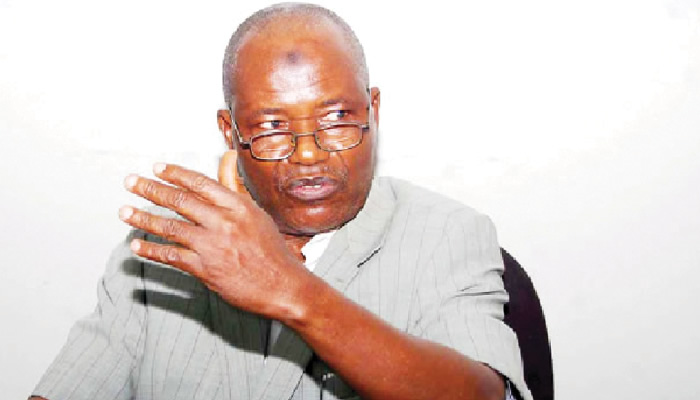
Those who committed themselves to voting for the President, Major General Muhammadu Buhari (retd) in the last two elections were hoping that the government would surprisingly end up redeeming its image. It has been from one hardship to another for the citizens since 2015. The government started with recession which actually brought down the President Goodluck Jonathan administration as his government was clueless in finding solutions to the problems. But then, the recession was from the global economic downturn. Thereafter, COVID-19 came with its devastating economic woes and global recession. For global recession, we may, to some degree, agree that there is not much a particular country’s managers can do to prevent the contagion effects but they can use policies to minimise the severity and duration of the effects.
Our economic managers have never been impressive in tackling any economic problems. Both monetary and fiscal policies have been counterproductive. There was no synergy between the managers with each claiming superiority over the other instead of reinforcing each other in policy formulation and implementation. The resulting economic failure has taken us to where we are today. Total economic disarray and policies inducing another round of local recession.
But Nigerians have never been so tolerant of any government as the Buhari regime. Possibly because at the coming of the President, he had lots of goodwill from the public with the background that he was going to fight corruption, which was what Nigerians considered the number one enemy elevated to new height by the Jonathan government. Immediately the All Progressives Congress’ government was inaugurated in 2015, the prices of petrol, electricity and diesel went up with the first level of naira depreciation. Prices of domestic goods and services went up in consonant with these background prices. Nigerians continued to manage hoping that good days would come.
I must confess now that I was one of those who believed that good days would come, as I was convinced that my prayers, including tajud or vigils, like those of others who believed that Buhari would be the answer to our corruption dilemma, was answered. The fact that we have since suffered more economic privation in the hands of the present government implies that God wanted to show us why he did not answer the earlier prayers to have Buhari as President. You can imagine what my prayer point is presently: Let thy will be done, o Lord.
The current confusion in the naira swap or naira distribution or naira ‘swaptribution’ is either an epitome of leadership in wickedness or leadership in incompetence. The Governor of the Central Bank of Nigeria, Godwin Emefiele, gave a timeline of almost 12 weeks for the introduction of the redesigned naira. The period was long enough for the CBN to brainstorm on modus operandi for the production and distribution of the redesigned currencies. The bank was eager to receive the ‘old’ naira notes, urging unsuspecting customers to pay their monies into the account within a specified period. Unknown to the public, the CBN was not doing anything to return the withdrawn money or large proportion of it to the public. Instead of returning about 75 percent of the withdrawn money to keep the economy running, particularly the informal sector that continues to sustain the Nigerian economy, the CBN returned only about 30 percent or thereabout, creating not just scarcity but inducing economic recession.
The policy argument that the money was withheld to prevent bribery by politicians during campaigns and voting period cannot stand. The politicians, the most active ones that can be the focus of the policy, have touched every state of the country with large crowds at every stop, and many rented with huge sums of money, particularly new money. One of those who were on such an outing showed us wads of new currency on a social media platform. That is what we were helplessly looking for in banks. Where did the money come from?
People like Tinubu, Atiku, Obi or Kwankwaso would not go to any bank before getting money to spend.
The CBN governor has to give us some other reason or reasons for the shortage of the new currencies in banks. Even when he and his principal disobeyed the Supreme Court to allow the ‘old’ money to continue in circulation till the next date for court hearing or judgement, we thought N200 notes were already loaded in ATMs and in banks’ vaults for easy access to customers. Where is the money? Where is N200?
It is clear that Godwin Emefiele is covering up his incompetence with constant visits to the President. His actions were not backed up by research from the CBN Research Department. They would have told him that Nigeria lacks telecommunication infrastructure that exists even in South Africa to pursue cashless economy; that he should make available about 70 percent of the new currency of what he expected to withdraw from the economy for a seamless transition; that withholding from circulation with immediate replenishment will shrink the economy and push it towards recession; that it will be injurious to the success of his political party in the coming election. They would have told him more. But does he care about the people, the party or even the economy. Did he consult or sought for opinion?
We cannot afford to push our luck too far. There is hunger in the land and the people are angry. That was why people could not see the inhumanity in killing and burning a POS operator for charging what they considered was excessive. That was why people could not recognise that bank workers are just employees who take instructions from their managers. And they could not realise that burning down the only branch of a bank in their location will deprive them of the services of that branch when the dust settles. Emefiele dare not appear in public until this season of anomy ends. In fact, he may have to forget his presidential ambition in future and sell off all those vehicles he bought for campaign originally. He needs to prevent a looming policy induced recession. There is already shrinking demand and decreasing capacity utilisation in industries. The informal sector activities are being grounded. A stitch in time …
Before we go to the poll
By the time you read this column next week, the first round of voting would have been concluded. But, in another three days from now, campaigns for positions to vote on Saturday will have to stop. The last two months or so have seen the presidential candidates in particular, crisscrossing every state of the country. We cannot claim again that any of those candidates is sick given the number of states they covered on some days.
It is not true that elites do not vote. The coming elections will serve as watershed for Nigeria and everyone seems to have been fired up. The depth and spread of the campaign is indicative of the fact that the candidates and political parties appreciate and value the electorate. We can take it that the candidates who did not campaign took the electorate for granted and do not deserve our votes.
I appeal to the media; electronic and print, to remind us of the profiles of the presidential candidates. What have they been doing for a living while out of office? How much have they contributed to the national revenue in terms of taxes paid on their businesses and jobs created? Or, how much employment did they provide or generate? Help recall their statements on the economy, security, education, health, SDGs and national plan during interviews at local and international fora, campaigns and casual events. I always enjoy such analysis for footballers prior to the commencement of major regional, continental or global events.














